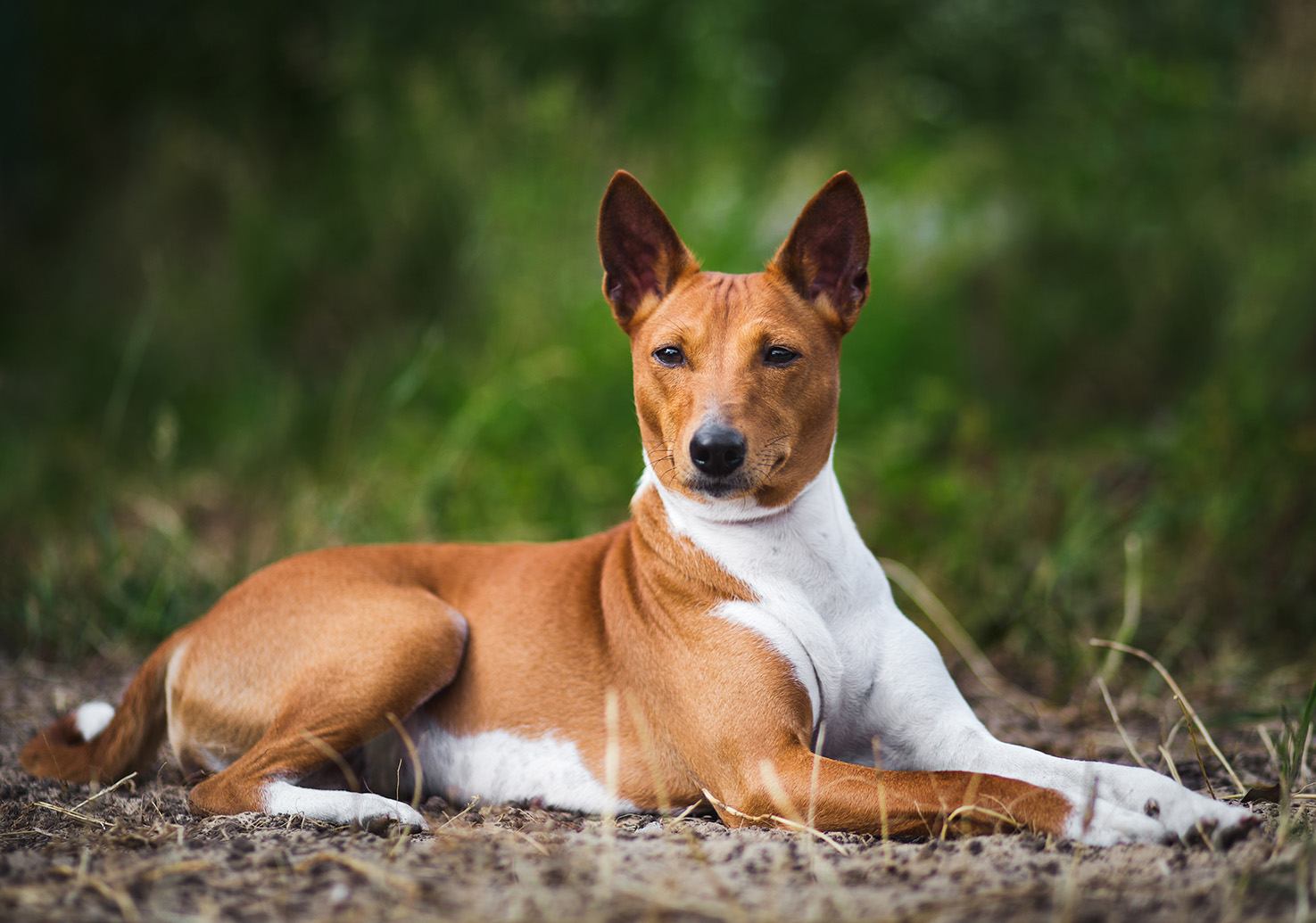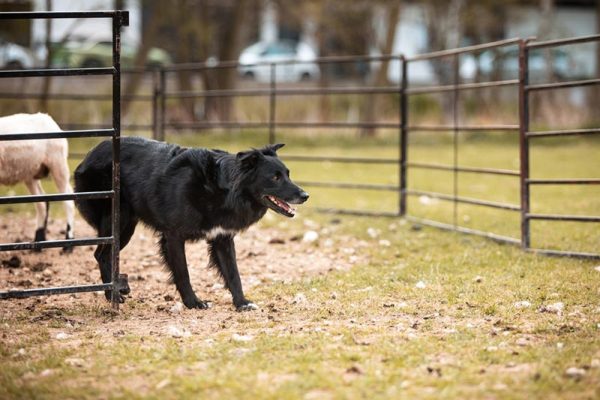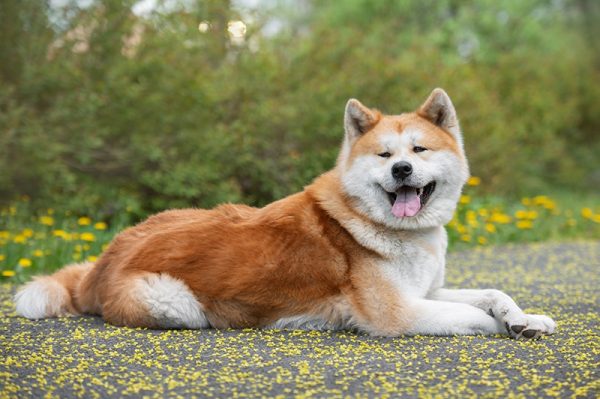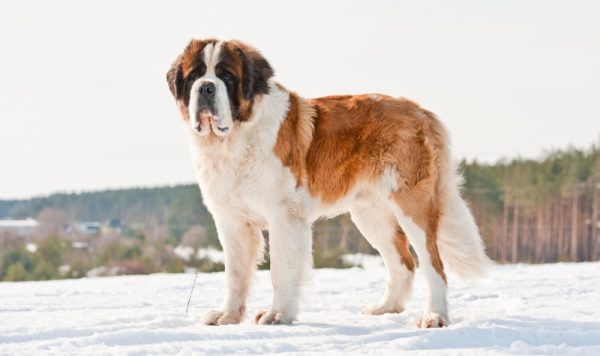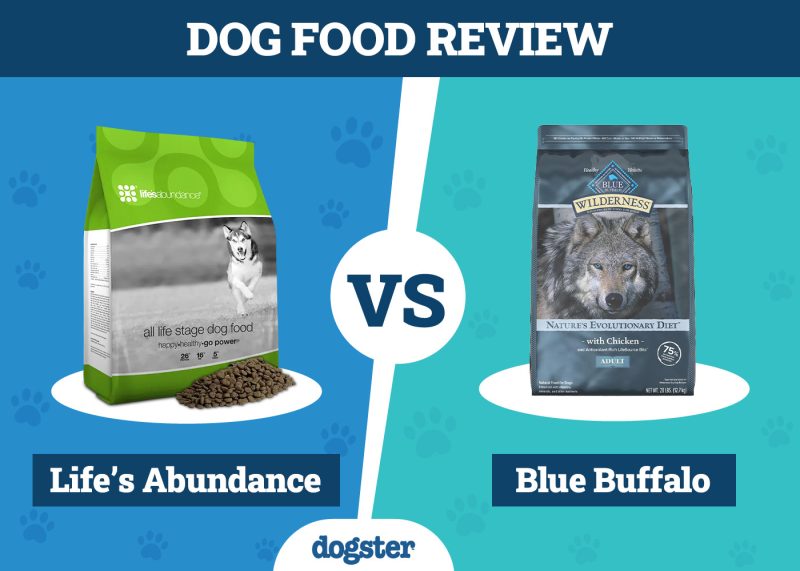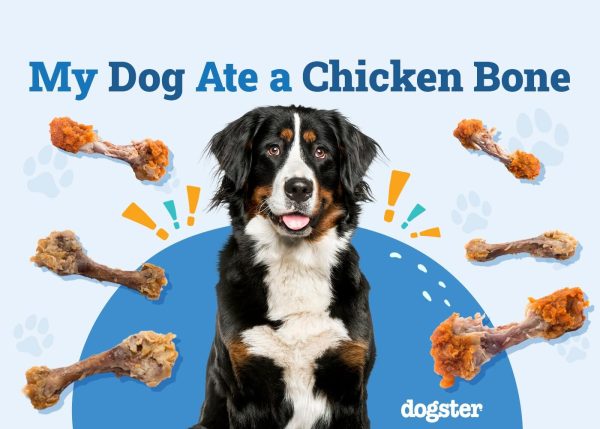In this article
Some dog breeds are very prone to problematic health issues. This can be concerning, discouraging, and expensive. There is nothing worse than getting a dog, only to realize that it is constantly sick or at risk of debilitating health issues. If you are not prepared, an unhealthy dog can cost you hundreds or even thousands of dollars.
For that reason, some people choose to seek out dogs that are generally healthier than their peers. There are a number of dog breeds that have a positive consensus about their overall health. Here are 10 of the healthiest dog breeds available, plus basic facts and what health conditions to be aware of with each one.

How Healthy Dog Breeds Are Categorized
Healthy dog breeds are categorized as such through various means. The breeds on this list are considered healthy because they typically show fewer signs of persistent disease and genetic abnormalities. Whether or not a dog breed is considered “healthy” versus “unhealthy” comes from a variety of sources.
Breeders keep track of persistent health issues in their particular breeds and report them to organizations like the American Kennel Club, which keeps detailed information about the overall health of the dog breed in question.
These dogs are also chosen anecdotally from surveys of owners, and veterinarians also weigh in about what they see on a regular basis. For example, most veterinarians can attest to treating a Golden Retriever for cancer at one point or another. Still, they might struggle to remember a time when they have seen multiple instances of terminal cancer in a Havanese.
All of this information is taken together to generate lists of dogs that seemingly have fewer serious health issues over the course of their lives than other breeds.
The 10 Healthiest Dog Breeds
1. Chihuahua

| Height: | 5–8 inches |
| Weight: | 4–6 pounds |
| Life Expectancy: | 14–16 years |
Chihuahuas are one of the most popular dog breeds in the world. They are instantly recognizable, adorably small, and have big personalities. They are also typically very healthy. The Chihuahua is the classic small dog, and they can live for a very long time. Chihuahuas often live to be 16 years old or older.
In 2023, the Guinness Book of World Records declared Spike, a Chihuahua mix, to be the oldest living dog in the world at 23 years of age. Chihuahuas are known to potentially develop heart issues as they age and some of these issues are genetic, meaning you should only get purebred Chihuahuas from responsible breeders who will screen for these cardiac problems in advance.
2. Toy Poodle

| Height: | 8–10 inches |
| Weight: | 4–6 pounds |
| Life Expectancy: | 14–18 years |
Poodles are very healthy dogs overall, but the Toy Poodle tends to be the longest living of all of them. Poodles come in three sizes: Standard, Miniature, and Toy. The Toy Poodle is the smallest of the three and has the longest potential lifespan. Toy Poodles can live to be up to 18 years old, making them one of the most enduring dog breeds available.
All Poodles have respectable lifespans, and even the Standard Poodle can live up to 15 years or longer. Poodles are very smart, friendly, and loyal, making them popular companion animals. Poodles have very few major health concerns, and there is no reason that, with good vet care, a Poodle can’t live well for more than 15 years.
3. Australian Cattle Dog

| Height: | 17–20 inches |
| Weight: | 25– 50 pounds |
| Life Expectancy: | 12–16 years |
Australian Cattle Dogs were propelled to recent fame due in part to the popular children’s show Bluey. Australian Cattle Dogs are known for their bright colors, smarts and sturdy frame. These dogs are a great mixture of size and longevity. Australian Cattle Dogs can live up to 16 years in good conditions, making them one of the most enduring breeds in this size range.
Stout Australian Cattle Dogs can weigh as much as 50 pounds but still have the lifespan of a small breed dog, making them great family companions. One of the biggest health issues that crops up in these dogs is deafness which can easily be managed.
4. Australian Shepherd
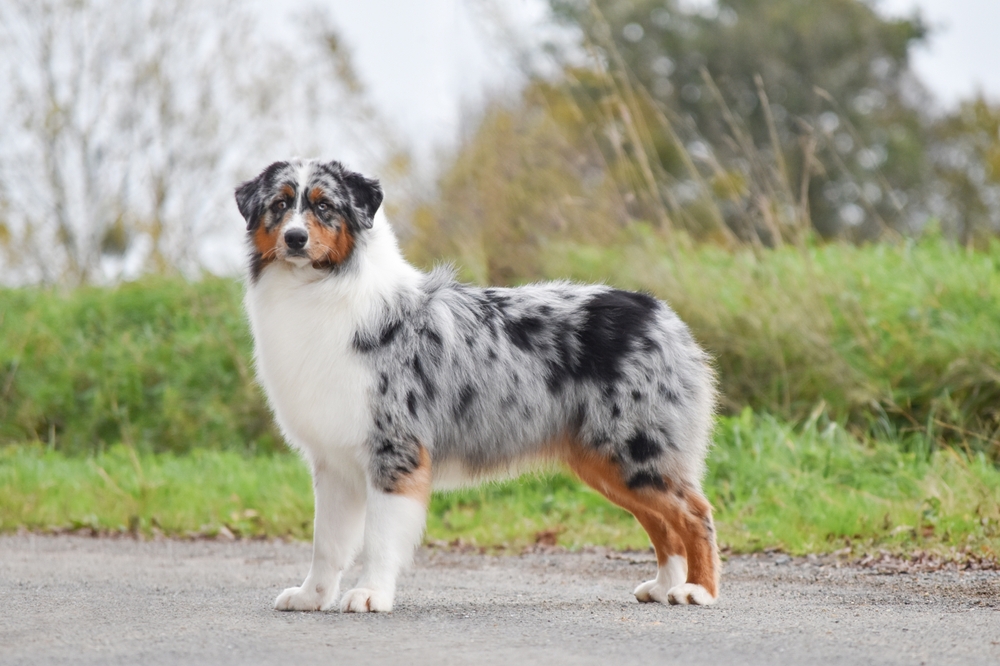
| Height: | 18–23 inches |
| Weight: | 40–65 pounds |
| Life Expectancy: | 12–15 years |
The is a hardy dog breed that is very sturdy and energetic and free of most major health conditions. Australian Shepherds (or Aussies) have a longer lifespan than most dogs of this size. Most major health conditions can be easily screened out during the breeding process.
Australian Shepherds are prone to developing cataracts, which can affect their eyesight as they age, but it will not hamper the dog’s lifespan or lifestyle in any meaningful way. If you are looking for an active, loyal, and enduring companion, consider getting a beautiful Australian Shepherd.
5. Foxhounds (English and American)
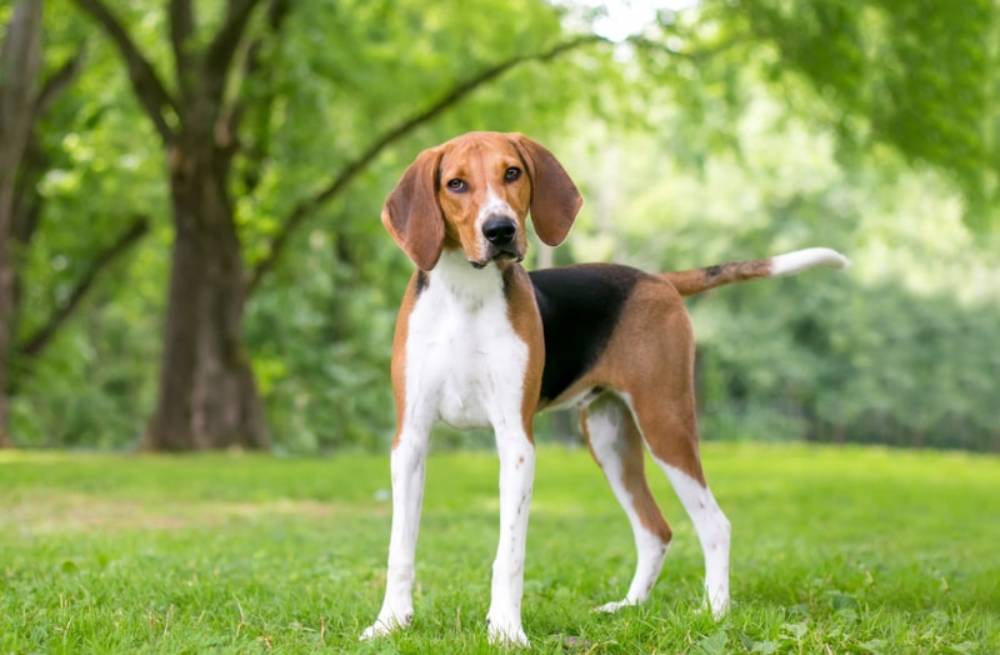
| Height: | 60–70 pounds |
| Weight: | 22–25 inches |
| Life Expectancy: | 11–13 years |
There are two primary types of foxhounds to consider. There are English Foxhounds, which are the original fox hunting breed that hails from England. Then there is the American Foxhound, which is descended from the English Foxhound and was bred to hunt foxes in North America. Both dogs are very sturdy, have great stamina, and can live long lives.
Foxhounds have very few health conditions of concern. Being a larger breed, hip dysplasia should always be on the list, but the chances of this can be decreased with proper pre-breeding screening.
6. Whippet
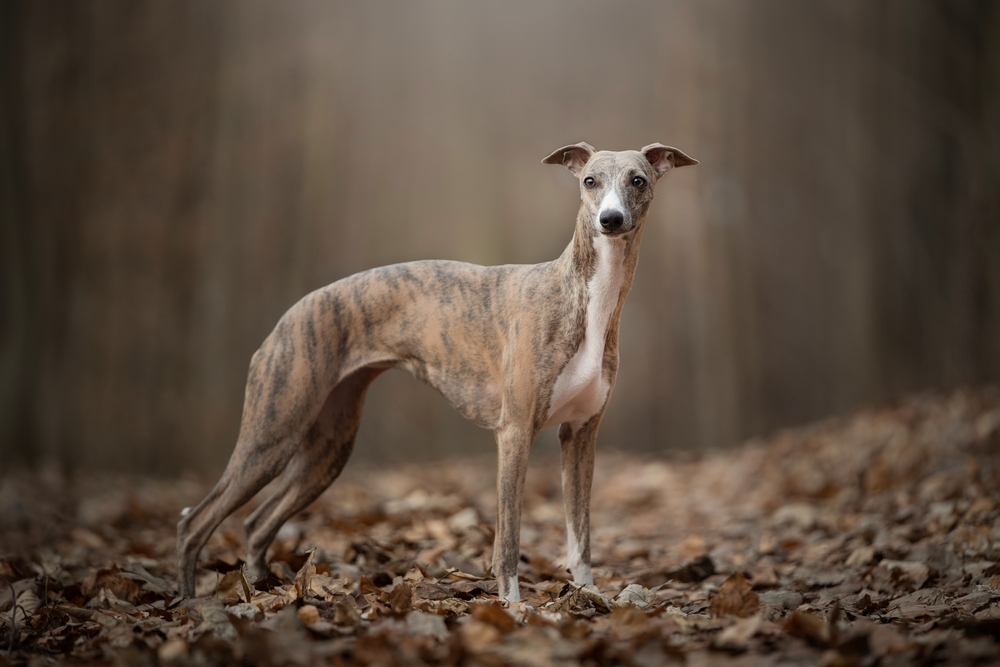
| Height: | 18–22 inches |
| Weight: | 25–40 pounds |
| Life Expectancy: | 12–15 years |
Whippets are known for being speedy. In fact, they are capable of reaching speeds around 35 miles per hour when they are at a full sprint. Whippets are very lean dogs that are smaller than Greyhounds. Whippets are also very healthy dogs. Whippets have no major health issues of note other than a propensity to become obese. The Whippet’s frame is built for speed, and it is very lean. Many people think their Whippets are skinny or underweight and overfeed them until they become obese, which can cause all sorts of health problems as the dog ages. Whippets that escape obesity should have little issue living to be 15 or even 16 years old.
7. Shiba Inu
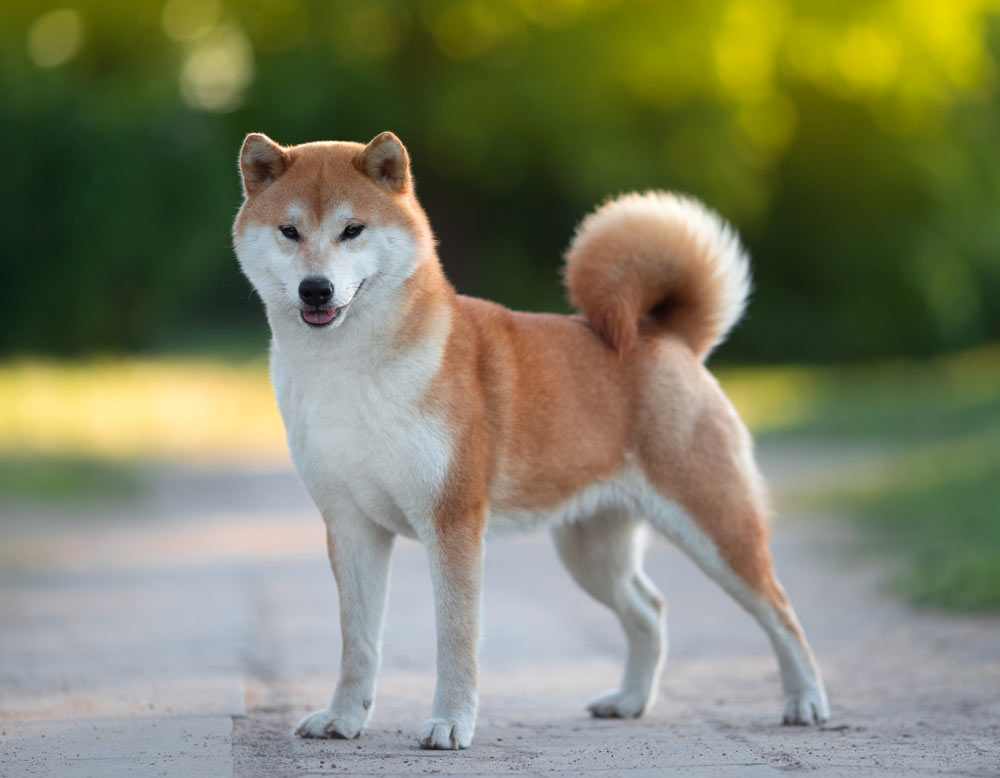
| Height: | 13–17 inches |
| Weight: | 17–23 pounds |
| Life Expectancy: | 13–16 years |
Shiba Inus are very healthy dogs that can live for a very, very long time with the proper care. Shibu Inu are one of the oldest dog breeds in the world, and they come from Japan. The Shiba Inu continues to be the most popular companion dog breed in Japan. Shiba Inus are known for their cultured history and unique appearance.
Interestingly enough, the most common health condition that afflicts Shiba Inu dogs is allergies. Allergies can cause issues similar to those found in humans, including red and itchy skin, sneezing, and general malaise. There are a number of ways to manage allergies in dogs, and your veterinarian should be able to diagnose and treat any active allergies in a Shiba Inu with few problems.
8. German Shorthaired Pointer
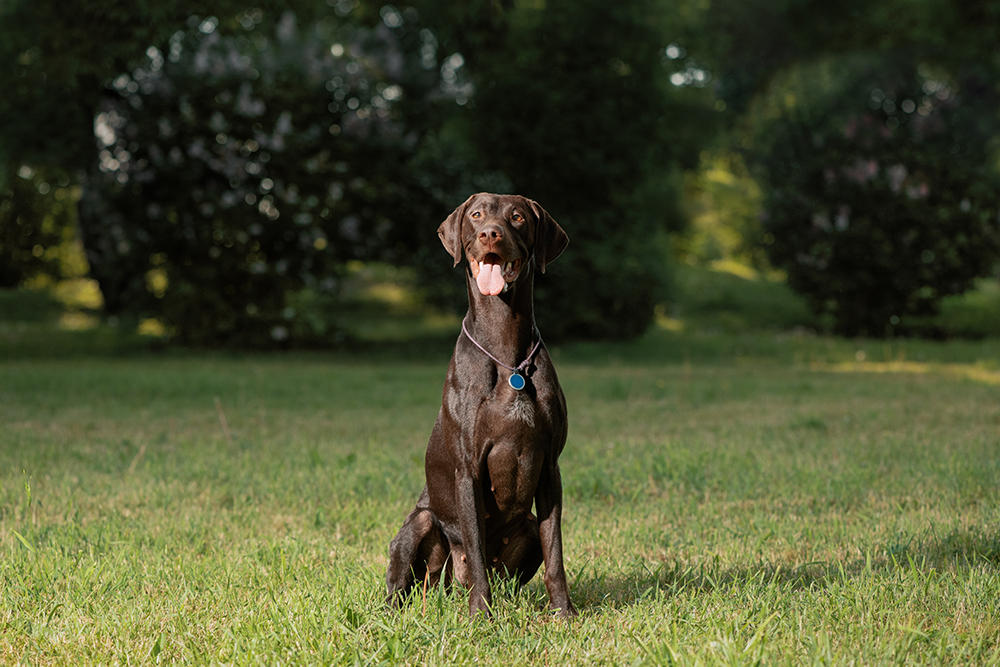
| Height: | 21–25 inches |
| Weight: | 45–70 pounds |
| Life Expectancy: | 10–12 years |
German Shorthaired Pointers are regal hunting dogs that have a high drive. These dogs are typically very healthy and can live out an average lifespan for a medium to large-sized dog. German Shorthaired Pointers have beautiful coats and can make excellent outdoor companions.
These dogs can suffer from progressive retinal atrophy, which can cause blindness in old age. Hip dysplasia is another potential issue for these dogs that don’t have proper pre-breeding screenings. German Shorthaired Pointers are great for anyone looking for a durable hunting dog with a healthy track record.
9. Havanese
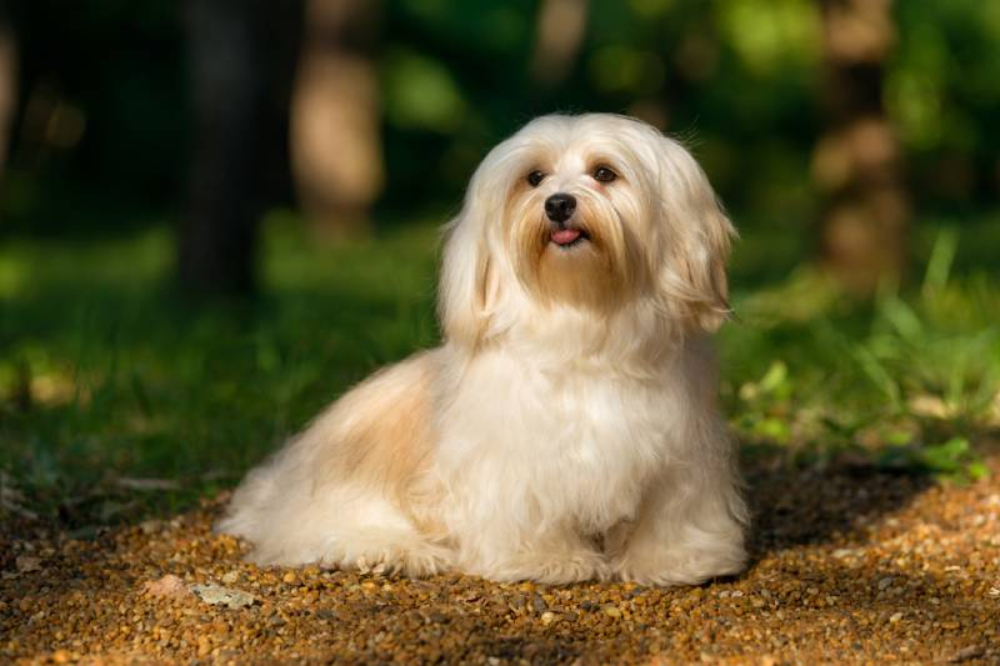
| Height: | 8–12 inches |
| Weight: | 7–14 pounds |
| Life Expectancy: | 14–16 years |
Havanese dogs hail from the island of Cuba (hence the origin of the name, as Havana is the capital of Cuba). In fact, the Havanese is the only recognized dog breed that is thought to be native to Cuba. These dogs are small and outgoing and can live for a very long time.
It is not uncommon for many Havanese dogs to reach 15 or 16 years of age with proper vet care. The Havanese can suffer from minor health issues like heart murmurs or deafness along with luxating patellas. In each case, these problems can be easily identified and managed, giving Havanese dogs long and fruitful lives.
10. Basenji
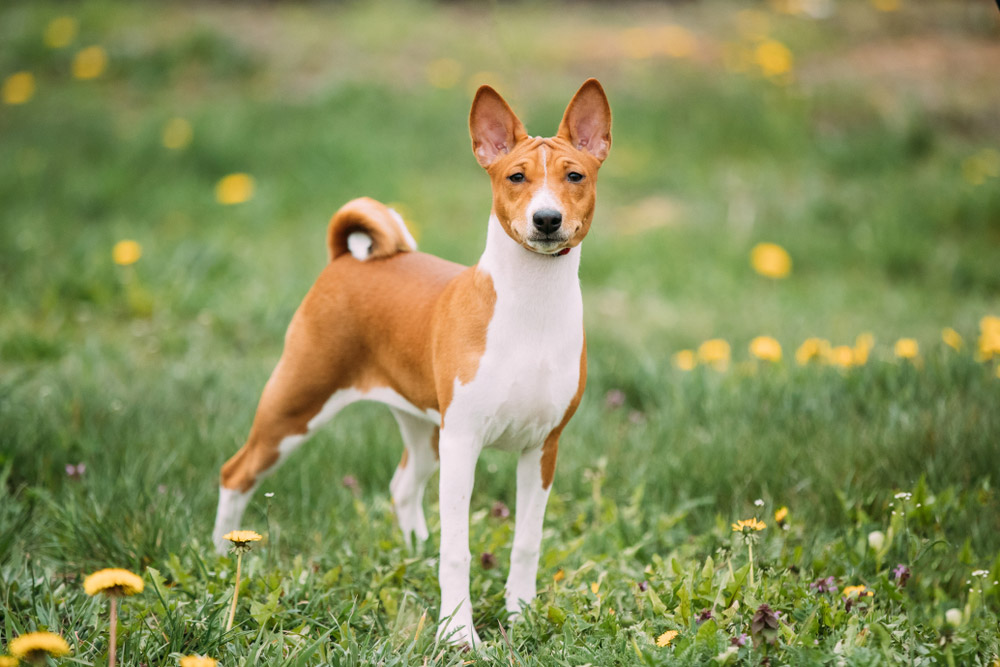
| Height: | 16–18 inches |
| Weight: | 20–24 pounds |
| Life Expectancy: | 13–15 years |
The Basenji, also known as Africa’s Barkless Dog, is a compact and wily hunter that is known for its sweet disposition and unique appearance. The Basenji are very intelligent and independent, which can make them difficult to train, but they don’t commonly have any major health issues. The biggest health concern for these dogs is an inflammatory bowel disease called IPSID, which can cause recurring diarrhea and abdominal pain. These dogs are generally very healthy and can live long and uneventful lives with the right care.

Are Mixed Breeds and Mutts Healthier?
Mixed breed dogs can be some of the healthiest dogs around. The mixture of genes helps tamp down recessive and genetic problems that can ail purebred dogs. A well-bred mixed breed dog might be healthier than a purebred dog if both parental lines have been screened for genetic problems. These unique combinations widen the gene pool, making mixed breeds typically very healthy.
This also applies to mutts that you might find in the shelter, which typically have a mixture of multiple breeds over numerous generations. Generally, the deeper the gene pool and the more mixed a dog is, the healthier it will be, especially compared to purebred dogs with a smaller gene pool.
Remember That Every Individual Dog Is Different
Every dog is different. You might get a dog that is supposed to live for 15 years only to be heartbroken when it dies of a disease at a much younger age than that. Determining whether a breed is healthy or not is just a generalization. As discussed, this list is based on trends, anecdotal evidence, and breed reports. However, there is no way to tell whether an individual dog is going to be healthy and hale throughout its entire life.
There are “unhealthy” dogs that can live for many years past their prime, and there are perfectly healthy dogs from robust breeds that can be felled by an untimely bout of cancer. Getting a dog from a healthy breed increases the likelihood that they will stick around for a long time, but it is not a guarantee. Life can be fickle like that sometimes.
Regular Vet Care Is Key to Any Dog’s Longevity
The key to supporting a dog’s health over the course of their life is regular vet care. Annual checkups with blood and urine tests can help you stay ahead of your dog’s health. These checkups will help find and cure any potential issues before they become too difficult to manage. You should always take the advice from your veterinarian seriously, especially when it comes to diet and exercise, and follow their guidelines for the best results.
If you need to speak with a vet but can't get to one, head over to PangoVet. It's our online service where you can talk to a vet online and get the advice you need for your dog — all at an affordable price!

Just because you get a healthy breed dog does not mean that you can neglect their health care and medical care. The best way to nurse a dog to their senior years is to take them to the vet at regular intervals.

Conclusion
These dog breeds represent some of the healthiest dogs in the world. These dogs are known for being low maintenance, escaping major health concerns, and having long lifespans. If you are worried about getting an unhealthy breed, you should consider one of the dogs on this list instead. But always remember that each dog is different, and individual dogs can come down with unexpected health problems no matter what breed they are. Consistent vet care is a must for anyone looking to keep a dog until their senior years.
Featured Image Credit: Verbitskaya Juliya, Shutterstock
